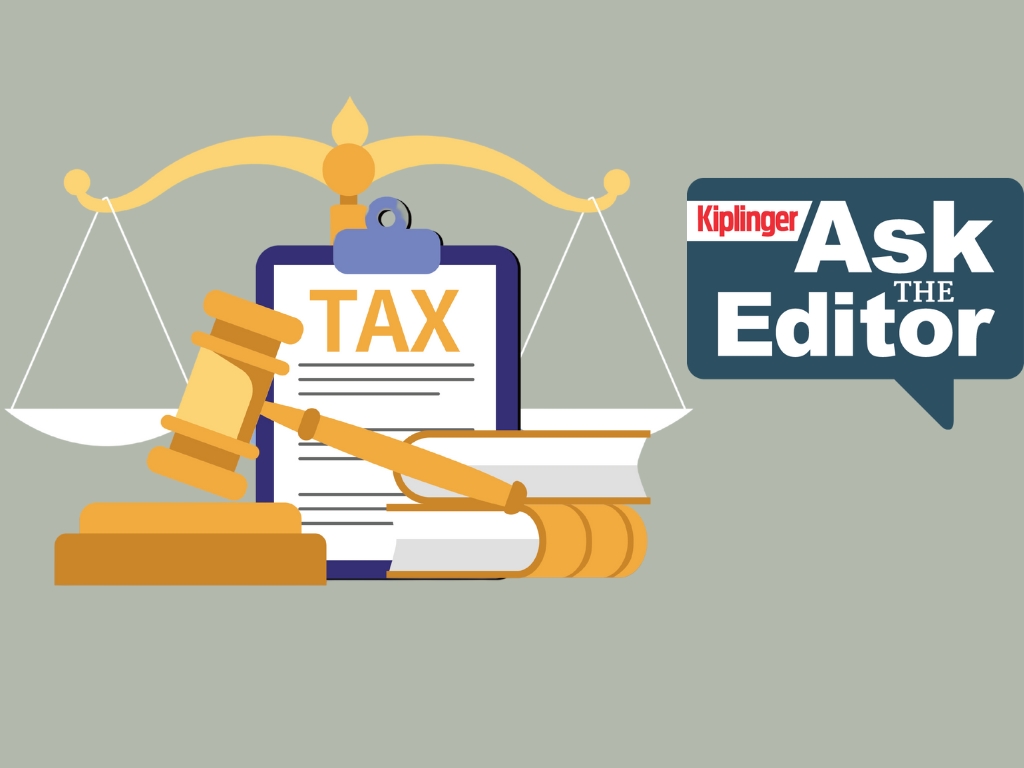Are You Forcing Unintended Consequences on Your Heirs?
Unless you take your heirs' wishes, taxes and interests into consideration in your plans, you could be committing some serious unforced errors with your estate.


When building an estate plan, the primary focus is typically how to transfer assets to heirs. Often it’s split equally, and sometimes it’s not. Regardless, most individuals don’t consider the outcome it creates for the beneficiaries.
Ideally, the estate plan creates a positive outcome. After all, your children will be better off with more assets, won’t they? But you might be surprised at how easy it is to force an unintended negative outcome on your loved ones, similar to an unforced error in tennis.
Many retirees take the following perspective with their estate plan: “What I’ve put together is enough. It’s my kids’ problem to deal with it when they get it. Either way, they’ll be better off, so I’m not concerned.” While that may be true, thoughtful stewards help create intentional outcomes that advance the mental and emotional value of their wealth. And generally, that means doing something that can be uncomfortable for many of us: talking about your wealth with your heirs.

Sign up for Kiplinger’s Free E-Newsletters
Profit and prosper with the best of expert advice on investing, taxes, retirement, personal finance and more - straight to your e-mail.
Profit and prosper with the best of expert advice - straight to your e-mail.
No one wants their children to look back and say, “I really wish Mom and Dad would have done this instead.” To make sure that doesn’t happen, you may need to change your mindset.
Unforced errors occur for a number of reasons, but most stem simply from a lack of communication and a lack of understanding of your heirs’ financial situations. The following are just a few examples of how you may be forcing unintended consequences on your heirs when your assets transition with your estate.
Passing Unequal IRA Tax Liability to Your Heirs
When you pass on assets in a traditional IRA, you are also passing on the taxes and Required Minimum Distributions (RMDs) associated with that account. Unless your children all pay tax at the exact same rate (and they likely don’t), each of their inheritances will come with a different tax liability, and therefore what they actually end up with in their pockets, after-tax, will be different, too.
This means your children who are in a higher tax bracket will get to keep less of their inheritance than your children in lower tax brackets. If giving each of your heirs an equal share of your assets is important to you, be sure to consider that when you determine how to split your assets in your estate plan. (For more on how to do that, read “Equal Shares for Heirs? Not Unless You Take Taxes into Account.”)
Inheriting a Vacation Home Could Bring Stress, Not Relaxation
If you own a cottage, a cabin, a lake home, a timeshare, a condo or any other kind of vacation home, it’s likely you hope that your children will be able to enjoy it as a part of your legacy for years to come. We often see this occur where a parent will either directly pass a property on to their children or set up a Qualified Personal Residence Trust (QPRT) so that their families can still enjoy nostalgic, memory-filled vacations.
While that is a fine motive and hope for your children, it’s worth having a conversation with your children to ensure that they share the same intent for their future. What if your children aren’t ready, or willing, to take on the management and maintenance of the property? Depending on the circumstances, the vacation home that holds fond memories for your children can quickly become a burden.
What if one or more of your children want to keep the property and the others do not? That can lead to the willing children needing to buy their siblings out of the property, which they may not be able to afford to do. This can lead to the home needing to be sold at a discount and leaving none of your kids in a happy spot.
If you are considering leaving a vacation home to your children, be sure to have candid conversations with them to ensure that is an outcome they want and are prepared to handle.
Selling Illiquid Asset at Fire Sale Prices
Illiquid assets are those that are hard to value and hard to sell, including things like farmland, real estate, collectibles and other alternative investments. If you plan to leave these kinds of assets, it’s up to your heirs to keep or sell them. Remember, your infatuation and expertise with these items may not be the same as your heirs. And even if they say they are interested in it now, that interest can, and often does, change after you’ve passed.
If the decision is made to sell the illiquid asset, keep in mind that these transactions often occur at an auction or at a fire sale price, leaving your heirs with less than you had envisioned. Consequently, face the truth of the situation and consider selling these assets while you, the most informed party, can ensure the fair market value is achieved.
Locking Up Life Insurance Proceeds in a Trust
For many good reasons, you may have purchased and own a life insurance policy in an Irrevocable Life Insurance Trust (ILIT), which was set up to keep the proceeds of the policy out of your estate for estate tax purposes. Many individuals did this decades ago when the federal estate tax exemption was $600,000 and have never reviewed the terms of the trust since.
In 2019, the federal exemption is $11.4 million per person, which for many individuals means the need to own the insurance policy in the trust may be unnecessary. If this applies, it’s important that you understand the terms of the trust and how the proceeds from the policy will be paid out. Does the trust lock up the funds so the heirs have difficulty accessing it? Maybe it should, maybe it shouldn’t?
It’s key that these terms are in alignment with your estate plan so that the funds are as accessible as you intend.
Protecting Wealth in Trusts That Don’t Align with Your Intents
Many individuals use revocable trusts as a way to protect their family members from the probate process. This may be a great intention, but when you pass, the trust becomes irrevocable, and the distribution of the funds is dependent upon the terms of the trust. Similar to the ILIT example above, this may create unnecessary restrictions toward accessing the funds.
Consequently, it’s important to make sure your need for the trust is supported by the terms of it to appropriately address your family’s situation.
Serving Up an Estate Plan Ace
An effective estate plan not only transfers assets to your heirs, but aligns the personal, emotional and financial situations of all parties involved. It’s not just about what you give, it’s also about what the heirs receive. Consequently, to create an effective estate plan, it’s essential to have an open conversation with your heirs to make sure that your intended financial objectives are in alignment with how your heirs plan to utilize the assets once received. This type of integrated approach will serve up an estate plan ace and avoid an unforced error.
The common thread here is that communication is key. Discussing your finances and end-of-life scenarios is tough. But having these conversations as both giver and receiver ultimately will lead to a better outcome for all.
When meeting with a financial adviser make sure to consider the following:
- Have you discussed your estate plan with your heirs?
- What sort of restrictions are you intentionally or unintentionally imparting on your heirs?
The opinions voiced in this material are for general information only and are not intended to provide specific advice or recommendations for any individual. This information is not intended as a substitute for specific individualized tax or legal advice. We suggest that you discuss your specific situation with a qualified tax or legal adviser.
Profit and prosper with the best of Kiplinger's advice on investing, taxes, retirement, personal finance and much more. Delivered daily. Enter your email in the box and click Sign Me Up.

Brian Vnak is Vice President, Wealth Enhancement Group, advising clients on income, gift, trust and estate tax issues.
-
 Stock Market Today: Stocks Step Back From New Highs
Stock Market Today: Stocks Step Back From New HighsInvestors, traders and speculators continue the low-volume summer grind against now-familiar uncertainties.
-
 Ask the Editor — Tax Questions on the New Senior Deduction
Ask the Editor — Tax Questions on the New Senior DeductionAsk the Editor In this week's Ask the Editor Q&A, we answer tax questions from readers on the new $6,000 deduction for taxpayers 65 and older.
-
 Do You Need Flood Insurance? I'm an Insurance Expert, and Here's Where You Can Get It
Do You Need Flood Insurance? I'm an Insurance Expert, and Here's Where You Can Get ItStandard homeowners insurance does not cover flood damage, so you might need separate flood insurance, which you can get either through FEMA or private companies. Here are the details.
-
 I'm an Investment Professional: These Are the Three Money Tips I'm Giving My College Grad
I'm an Investment Professional: These Are the Three Money Tips I'm Giving My College GradCollege grads can help set themselves up for financial independence by focusing on emergency savings, opting into a 401(k) at work (if it's offered) and disciplined, long-term investing.
-
 New SALT Cap Deduction: Unlock Massive Tax Savings with Non-Grantor Trusts
New SALT Cap Deduction: Unlock Massive Tax Savings with Non-Grantor TrustsThe One Big Beautiful Bill Act's increase of the state and local tax (SALT) deduction cap creates an opportunity to use multiple non-grantor trusts to maximize deductions and enhance estate planning.
-
 Know Your ABDs? A Beginner's Guide to Medicare Basics
Know Your ABDs? A Beginner's Guide to Medicare BasicsMedicare is an alphabet soup — and the rules can be just as confusing as the terminology. Conquer the system with this beginner's guide to Parts A, B and D.
-
 I'm an Investment Adviser: Why Playing Defense Can Win the Investing Game
I'm an Investment Adviser: Why Playing Defense Can Win the Investing GameChasing large returns through gold and other alternative investments might be thrilling, but playing defensive 'small ball' with your investments can be a winning formula.
-
 Five Big Beautiful Bill Changes and How Wealthy Retirees Can Benefit
Five Big Beautiful Bill Changes and How Wealthy Retirees Can BenefitHere's how wealthy retirees can plan for the changes in the new tax legislation, including what it means for tax rates, the SALT cap, charitable giving, estate taxes and other deductions and credits.
-
 Portfolio Manager Busts Five Myths About International Investing
Portfolio Manager Busts Five Myths About International InvestingThese common misconceptions lead many investors to overlook international markets, but embracing global diversification can enhance portfolio resilience and unlock long-term growth.
-
 I'm a Financial Planner: Here Are Five Smart Moves for DIY Investors
I'm a Financial Planner: Here Are Five Smart Moves for DIY InvestorsYou'll go further as a DIY investor with a solid game plan. Here are five tips to help you put together a strategy you can rely on over the years to come.